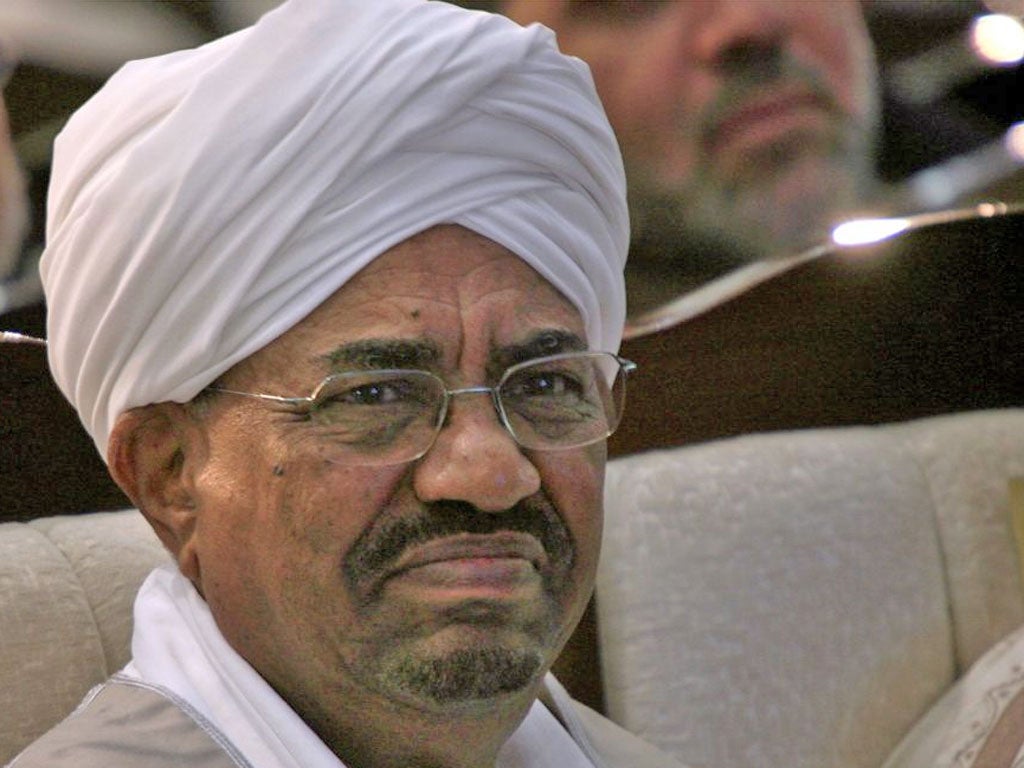Sudan’s President announces release of political prisoners

Sudan’s President, Omar al-Bashir, has said that all political prisoners are to be released in the latest sign of an easing of political tensions within the country and with South Sudan.
The leader, who is wanted by the International Criminal Court for war crimes, said last month that he would step down ahead of elections in 2015.
The move to release prisoners comes after Sudan and the newly-independent South Sudan withdrew forces from a buffer zone on either side of their contested border and agreed to resume southern oil production. The thawing of relations was accompanied by the first suggestion, last week, that Sudan’s ruling party, the National Congress Party, would open negotiations with rebel groups in its borderlands.
“We announce a decision to free all the political prisoners and renew our commitment to all political powers about dialogue,” the President told MPs at the opening of parliament.
The 69-year-old military leader came to power in a coup in 1989. Since then the NCP has imprisoned tens of thousands of opponents.
When South Sudan – which contains two-thirds of the former country’s oil reserves – closed down production last year it ruined the economies in the north and south. With the cost of living rising dramatically, Mr Bashir’s government faced unprecedented public protests from students and opposition groups. They responded with scepticism to the news. Malik Agar, from the northern wing of the Sudan People’s Liberation Movement said he would not comment on the prisoner release because he is “not sure which political prisoners he is referring to”.
Join our commenting forum
Join thought-provoking conversations, follow other Independent readers and see their replies
Comments
Bookmark popover
Removed from bookmarks